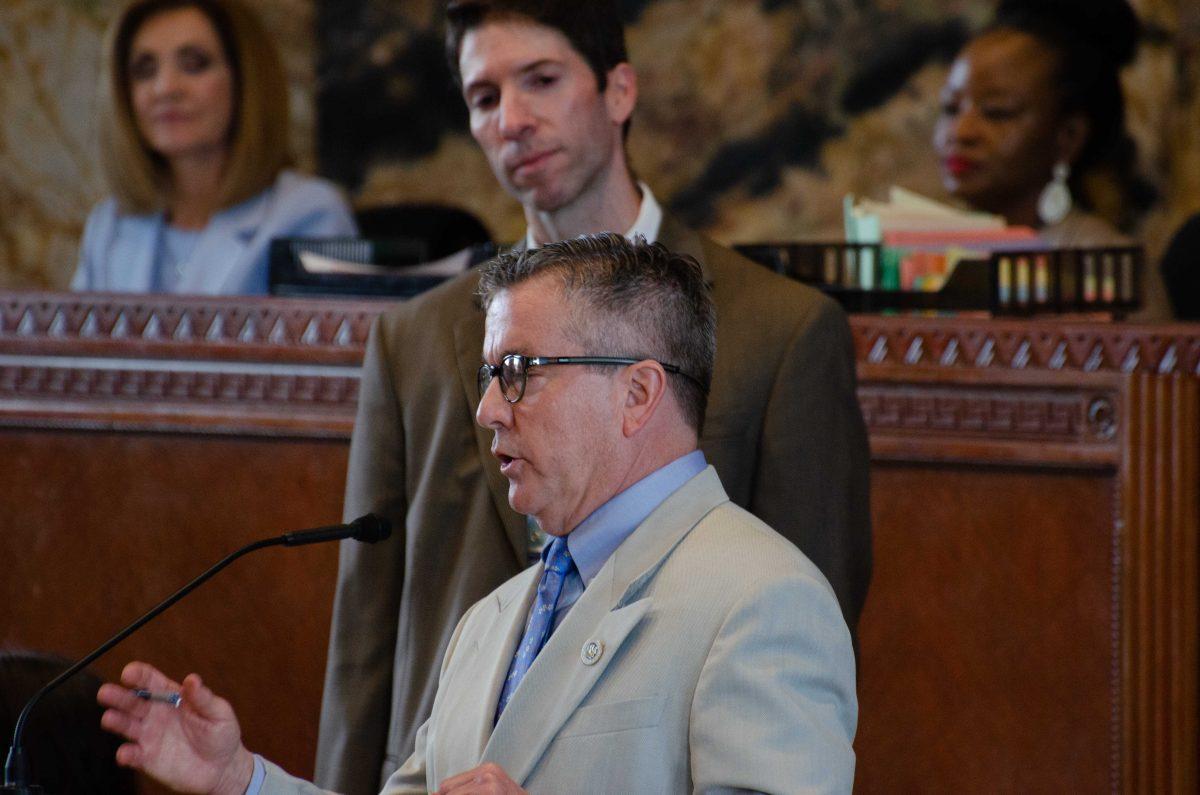BATON ROUGE–Under a compromise approved in the chaotic closing minutes of the spring session Thursday, state lawmakers limited a $2,000 pay increase for teachers to a one-year stipend and cut $100 million from what the Senate had sought for the Louisiana Department of Health.
Those moves came even though legislators had more than $2 billion of revenue at their disposal beyond what had originally been expected to supplement both the current budget and one for the fiscal year starting July 1.
In the deal, lawmakers also added back more than $40 million for early childhood education programs and $25 million for extra differential pay for teachers in demand areas like math and science.
The final votes came with angry lawmakers demanding to know what had happened with the teacher pay raises and the health cuts and objecting strenuously that they did not know the details of the bills they were voting on.
The package of budget bills includes hundreds of million for roads and bridges, health care and higher education as well as money to pay down state debt.
The House voted 95-9 to approve the final version of House Bill 1, the state operating budget negotiated by a conference committee made up of members from each chamber. The Senate passed it 35-3.
But as lawmakers heard a few of the details of the final agreements only 20 minutes before the session expired, some demanded to know why the teacher pay raise was not made permanent and how House members could have slipped in the $100 million cut in health spending.
Sen. Rogers Pope, R-Denham Springs, and a long-time educator, called the failure to make the teacher pay raise permanent an insult to teachers.
“The budget has come back in horrible, horrible condition,” he said.
Sen. Fred Mills, R-Parks, the chairman of the Senate Health and Welfare Committee, said he could not understand how the Health Department budget could have been cut at the last minute when the state has so much extra money. Sen. Bodi White, R-Central, who chairs the Senate Finance Committee, responded that House members insisted on the cut.
It was not immediately clear which health programs would be cut or whether the reduction would cause a corresponding loss in federal funding.
As House Speaker Clay Schexnayder, R-Gonzalez, rushed members from one vote to another as the clock ticked down to the 6 p.m. end of the session, conservative Republicans lashed out at him for refusing their demands about voting procedures.
“Mr. Speaker, you have to follow the rules of the House,” Rep. Blake Miguez, R-New Iberia, the leader of the House Republican Delegation, shouted. “ Noone is above the rules of the House, not even yourself.”
Conservatives in the House had battled for most of the two-month session to hold onto expenditure limits under a formula that caps legislative spending in an effort to reduce the size of the budget.
But Gov. John Bel Edwards, a Democrat, and Senate leaders teamed up to pressure House members to lift the cap and allow up to $250 million of the extra funds to be spent this year’s and $1.4 billion to be spent next year.
At a press briefing after the session ended, Edwards said the late cut in the Health Department budget came as a “complete surprise” to him and could cost the state hundreds of millions of dollars in related federal funding.
He also criticized the increasing partisanship at the Capitol.
“You heard me say this before: we’re not Washington D.C.,” he said. “We’re moving in that direction, and that is not a good thing.”
Earlier in the session, Edwards had proposed a $3,000 pay increase for teachers that would continue in future years. House Republicans wanted to use part of the windfall to pay off state and local debts for the teachers’ retirement program, ostensibly freeing up money for parishes to decide whether to give raises to their teachers.
Education leaders placed ongoing pay raises of $2,000 for teachers and $1,000 for support staff in the Minimum Foundation Program, a formula for allocating funding to school districts.
But late Thursday, lawmakers ignored that plan and rewrote the raise into the budget, thus turning the increases into one-time stipends. Some members said they would try again next year to make the raises permanent.
As the session came to an end, some lawmakers said $44 million had been added back into the budget for early childhood education programs.
Edwards’ original budget proposal had included $52 million for the programs to help replace some of the federal funds being lost for that. Administration officials had said $52 million would have helped to retain only a quarter of the 16,000 subsidized seats for children that were created during the pandemic.
The Senate’s budget had reduced that to $14 million, which would have funded about 1,120 seats, while the House budget had cut that funding to zero.
House Bill 1 is the main budget bill for fiscal year 2024. Lawmakers also passed HB 2, which outlined construction and infrastructure projects for next year, and HB560, which provides for any remaining spending the legislature wishes to use for this year. Other supplemental bills made up the rest of the budget.
State lawmakers limited pay increase for teachers and cut $100 million in health spending
June 9, 2023
Rep. Jerome Zeringue, the chairman of the House Appropriations Committee, spoke about the state budget Wednesday on the House floor
More to Discover








